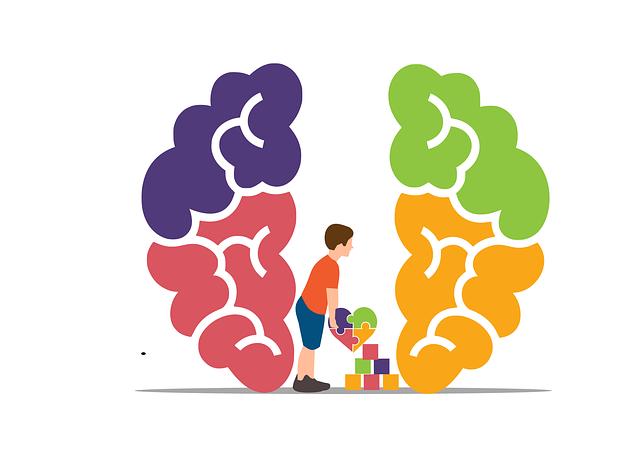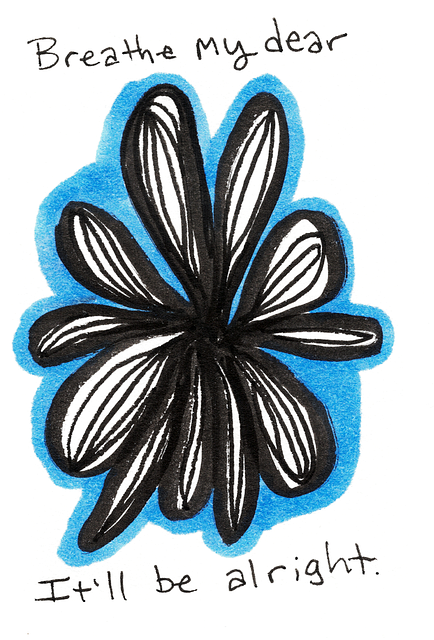Community outreach is a powerful strategy to enhance access to mental health support, especially for underserved populations. By directly engaging communities through workshops, training, and awareness campaigns, organizations can reduce stigma, educate the public, and offer practical resources. This approach aims to empower individuals with coping strategies and improve social interactions. For bipolar disorder, community programs integrate tailored therapy approaches like CBT and DBT, mental wellness coaching, and mood management education, enabling proactive navigation of bipolar cycles. Strategic partnerships with local entities and cultural competency training ensure inclusive care that respects diversity, improving well-being through effective therapy for bipolar disorder and other conditions.
Community outreach programs play a pivotal role in extending mental health support to underserved populations, particularly those struggling with bipolar disorder. This article explores strategies for implementing effective therapy programs, focusing on how community partnerships can engage at-risk individuals and enhance their well-being. By understanding the unique needs of these communities, we can offer tailored interventions that significantly improve outcomes for those dealing with bipolar disorder.
- Understanding Community Outreach for Mental Health Support
- Strategies for Effective Therapy Programs in Bipolar Disorder Management
- Building Partnerships and Engaging at-Risk Populations
Understanding Community Outreach for Mental Health Support

Community outreach plays a pivotal role in promoting mental health support, especially for often overlooked or underserved populations. It involves directly engaging with communities to raise awareness about mental health issues, break down stigma, and offer accessible resources. Understanding community outreach requires recognizing its potential to reach individuals who might not otherwise seek therapy for bipolar disorder or other mental health challenges. By taking mental health services to where people are, organizations can increase the likelihood of early intervention and continuous care.
This strategy involves various initiatives such as Stress Management Workshops organized to empower individuals with coping mechanisms, Social Skills Training aimed at enhancing interpersonal interactions, and Public Awareness Campaigns Development to educate the public about mental health. These efforts not only cater to immediate needs but also foster a supportive environment where mental health is prioritized. Through these community-driven approaches, the goal is to ensure that quality therapy for bipolar disorder and other conditions becomes more accessible and inclusive.
Strategies for Effective Therapy Programs in Bipolar Disorder Management

Community outreach programs play a pivotal role in managing Bipolar Disorder by providing accessible and tailored Therapy for Bipolar Disorder. Strategies should focus on integrating various therapeutic approaches to cater to diverse patient needs. Cognitive Behavioral Therapy (CBT), for instance, equips individuals with coping mechanisms and helps identify and change negative thought patterns, while Dialectical Behavior Therapy (DBT) promotes emotional regulation and stress management skills.
Integrating Mental Wellness Coaching Programs Development can further enhance these efforts by offering ongoing support, encouraging self-management, and fostering positive thinking. Emphasizing Mood Management through structured routines, medication adherence, and psychoeducation empowers individuals to proactively navigate their bipolar cycles. This comprehensive approach ensures that community outreach programs effectively support those living with Bipolar Disorder on their journey towards improved mental wellness.
Building Partnerships and Engaging at-Risk Populations

Building partnerships is a key strategy in effective community outreach programs. Collaborating with local organizations, schools, and healthcare providers can help expand reach and ensure services are tailored to the unique needs of diverse communities. By fostering strong relationships, mental health professionals can gain insights into cultural nuances, enabling them to offer more inclusive therapy for bipolar disorder and other mental health conditions. Engaging at-risk populations requires a targeted approach that considers barriers to access and addresses them proactively.
Cultural competency training for healthcare providers is essential in navigating these challenges. Equipping professionals with the skills to communicate effectively across different cultural backgrounds fosters trust and encourages individuals, especially those from marginalized communities, to seek mental health support. Mental health awareness campaigns play a vital role in breaking down stigma and promoting early intervention. By combining these collaborative efforts with comprehensive risk assessments, community outreach programs can better identify and serve those in need, ultimately improving overall mental well-being.
Implementing community outreach programs for mental health support, particularly focusing on therapy for bipolar disorder, requires a strategic approach. By fostering partnerships and engaging at-risk populations, we can effectively navigate the challenges of providing care in diverse settings. These initiatives not only enhance access to services but also promote inclusive healthcare solutions that have the potential to revolutionize bipolar disorder management, ensuring better outcomes for those in need.













